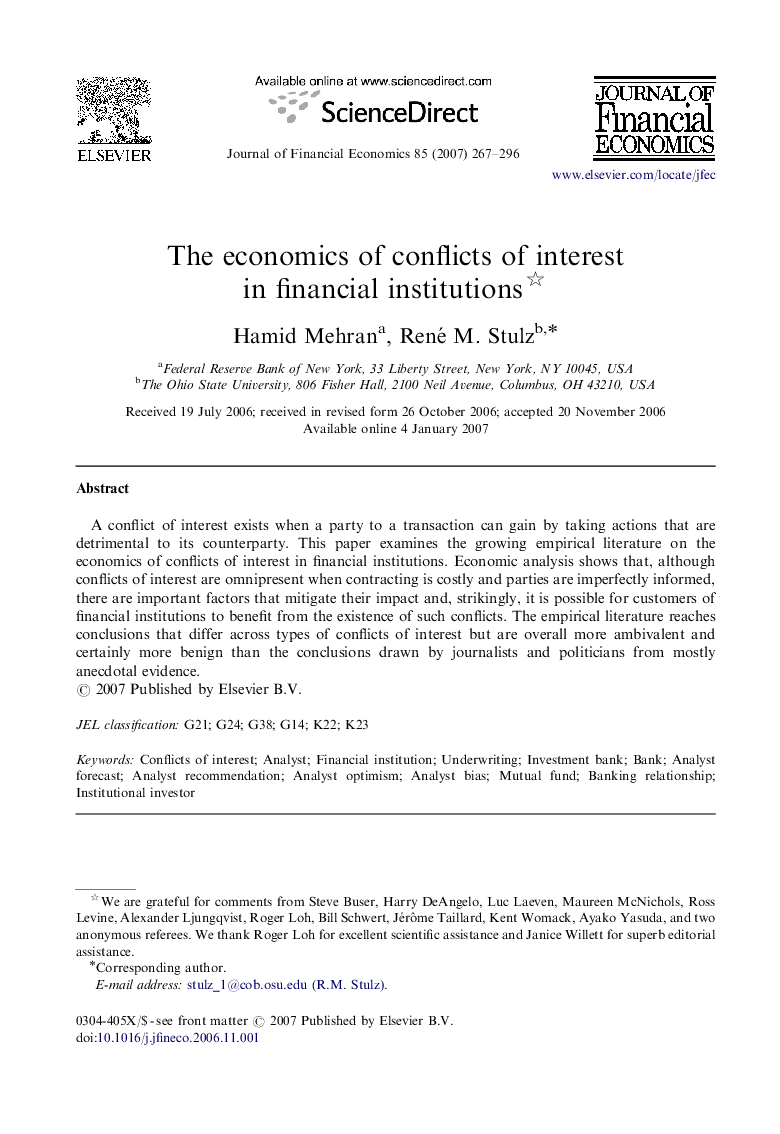| Article ID | Journal | Published Year | Pages | File Type |
|---|---|---|---|---|
| 960603 | Journal of Financial Economics | 2007 | 30 Pages |
A conflict of interest exists when a party to a transaction can gain by taking actions that are detrimental to its counterparty. This paper examines the growing empirical literature on the economics of conflicts of interest in financial institutions. Economic analysis shows that, although conflicts of interest are omnipresent when contracting is costly and parties are imperfectly informed, there are important factors that mitigate their impact and, strikingly, it is possible for customers of financial institutions to benefit from the existence of such conflicts. The empirical literature reaches conclusions that differ across types of conflicts of interest but are overall more ambivalent and certainly more benign than the conclusions drawn by journalists and politicians from mostly anecdotal evidence.
